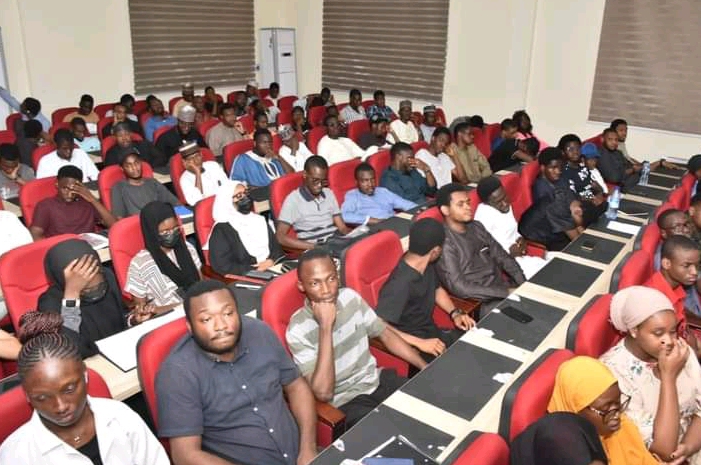In recent times, Nigeria has witnessed a series of policies that appear to be hastily packaged and implemented without thorough consideration of their long-term consequences. These policies, usually introduced without adequate consultation or analysis, have oftentimes sparked public outcry.
Quick-fix policies refer to hurriedly developed decisions that are implemented by government officials, often without sufficient input from stakeholders or consideration of the broader implications. These policies are characterized by their abrupt introduction, lack of transparency, and the frequent need for revision or reversal after public backlash.
Read Also: Mixing Different Categories of Offenders Behind Bars: The Urgent Case for Prison Reform.
Among such policies are the controversial cybersecurity charges on bank deposits and the recent education policy that restricts university admission to students aged 16 and above. These policies exemplify the dangers of rushed decision-making and highlight the need for a more thoughtful and inclusive approach to governance in Nigeria.
One of the most glaring examples of a hurriedly packaged policy in Nigeria is the cybersecurity charges on bank deposits. This policy was introduced without adequate public consultation and was met with immediate backlash from citizens, financial institutions, and economic experts. The policy mandated a levy on every bank deposit made by individuals and businesses, ostensibly to fund cybersecurity measures within the banking sector.

However, the rationale behind this decision was unclear, and many questioned the fairness and necessity of imposing additional financial burdens on already struggling Nigerians. In Nigeria, this approach to policymaking has become increasingly common, leading to confusion and mistrust among the populace.
The policy was widely criticized for its potential to discourage savings and investment, reduce the flow of funds within the economy, and exacerbate the financial hardships faced by ordinary Nigerians. The backlash was swift and intense, with various stakeholders, including banking associations, civil society groups, and the general public, voicing their concerns through protests, petitions, and social media campaigns.
In response to the mounting pressure, the President of Nigeria intervened and reversed the policy, citing the need to protect the interests of the public and maintain trust in the financial system. While the reversal was a relief to many, it also exposed the flaws in the policy formulation process and raised questions about the level of coordination and communication within the government.
The impact of this hasty financial policy on public trust cannot be overstated. The abrupt introduction and subsequent reversal of the cybersecurity charges eroded confidence in the government’s ability to make sound economic decisions. It also highlighted the disconnection between policymakers and the people they are meant to serve, as well as the lack of a coherent strategy for addressing critical issues like cybersecurity in the banking sector.

Another example of a poorly conceived policy is the recent education reform that restricts university admission to students aged 16 and above. This policy, which was introduced without sufficient consideration of its implications, has been widely criticized even within the academic community as retrogressive and out of touch with global educational standards.
In today’s interconnected world, where nations compete in a global labour market, early access to education is crucial for young people to develop the skills and knowledge they need to succeed. In many European, American, and Asian countries, children are encouraged to start their education early, allowing them to acquire expertise in their chosen fields while their minds are still impressionable and eager to learn. By the time they reach adulthood, these students have not only completed their education but have also gained valuable experience that positions them ahead of their peers in the job market.
Read Also: The HND-BSc Dichotomy Debate: Unveiling the Consequences.
The new Nigerian education policy that sets an arbitrary age limit which prevents students from gaining admission to universities until they reach 16 ignores the fact that academic ability and maturity are not solely determined by age. There are numerous cases of younger students who excel academically, outperforming their older peers in national examinations such as the West African Senior School Certificate Examination (WASSCE) and the Joint Admissions and Matriculation Board (JAMB) exams.
These students, who have demonstrated their readiness for higher education, are now being denied the opportunity to continue their academic journey simply because they do not meet an age requirement. The arguments against this policy are numerous and compelling. First, it is fundamentally unfair to penalize students for excelling academically at a young age.
Second, it places Nigeria at a disadvantage in the global labour market, where age is becoming increasingly irrelevant, and skills and experience are the key determinants of employability. Third, the policy fails to provide any alternative pathways for students who are barred from university admission due to their age, leaving them in a state of limbo and potentially derailing their educational and career aspirations.
Read Also: Prioritize Digital Skills In Nigeria’s Education Curriculum For Future-Ready Workforce
Moreover, the relevance of maturity in educational success is highly debatable. While some argue that younger students may lack the emotional and psychological maturity to handle the rigours of university life, this perspective fails to consider the diverse experiences and capabilities of individual students. Maturity is not a one-size-fits-all concept, and it should not be used as a blanket justification for restricting access to education. Instead, the focus should be on providing the necessary support systems and resources to help all students succeed, regardless of their age.
The government’s failure to provide alternatives for affected students further exacerbates the problem. By implementing this policy without offering any viable options for those who are excluded, the government is effectively forcing these students to put their education on hold, with potentially devastating consequences for their future. This lack of foresight and planning is emblematic of the broader issues with hurriedly packaged policies in Nigeria.
The cybersecurity charges on bank deposits and the university admission age restriction are just two examples of a broader pattern of rushed and poorly thought-out policies in Nigeria. These cases reveal several common themes that characterize hurriedly packaged policies and underscore the need for a more deliberate and inclusive approach to governance.
One of the most significant issues with hurriedly packaged policies is the lack of thorough consultation and analysis. Policies that are developed and implemented in haste often fail to consider the perspectives of key stakeholders, including the affected public, industry experts, and civil society organizations. This lack of input leads to policies that are not only flawed but also disconnected from the realities on the ground.
Read Also: 2023 Population Census: A Necessity for Addressing Nigeria’s Problems
Furthermore, The resounding “No” from the academic community during the meeting where the policy was unfolded highlights a significant disconnect between policymakers and the very people they are supposed to serve. In many cases, decisions are made at the highest levels of government without sufficient regard for the needs, concerns, and aspirations of ordinary Nigerians. This top-down approach to policymaking fosters a sense of alienation and frustration among the populace, who feel that their voices are not being heard.
The consequences of the hurriedly packaged university age restriction policy are far-reaching and have significant implications for Nigeria’s economic, social, and educational development. By delaying access to higher education for capable students, the policy is likely to result in a range of negative outcomes, both in the short and long term.

Economically, this policy might weaken Nigeria’s global competitiveness, as students forced to delay their education could lose precious time and opportunities to gain experience and build their careers. Socially, the policy could worsen existing inequalities, especially for those who might miss out on opportunity to acquire higher education forever and the chance to improve their socioeconomic status.
Educationally, the policy could lead to a decline in the quality of education in Nigeria, as universities may be forced to admit older students who are less academically prepared: the cut-off marks could be lower or the standard of requirement for admission into tertiary institutions will be lower simply for universities to have enough entrants.
This could result in lower academic standards, increased dropout rates, and a general decline in the overall effectiveness of the higher education system. By restricting access to higher education, the government is effectively stunting the growth and progress of the country’s future leaders, innovators, and professionals. In the long term, the policy could have serious implications for national development.
Read Also: How Nigeria’s Stolen Wealth is Shaping Its Future
In addition to reconsidering the university admission age restriction, the Minister of Education and education authorities in Nigeria must urgently address the growing menace of examination malpractice in the West African Senior School Certificate Examination (WASSCE). It is alarming that students who cannot pass basic primary school leaving exams are somehow achieving multiple distinctions in WASSCE, raising serious concerns about the integrity of the examination process.
The role of secondary school teachers and school proprietors in facilitating this malpractice cannot be overlooked, as they often engage in unethical practices to market their schools as institutions where students can easily achieve high results in one sitting. This widespread malpractice undermines the quality of education and produces undergraduates who are ill-prepared for the rigours of higher education, thus contributing more significantly to the problems in Nigeria’s university system than the age of admission.
Focusing on eliminating examination malpractice will directly address the underlying issues affecting the calibre of students gaining admission into universities. By concentrating efforts on ensuring that WASSCE results accurately reflect students’ true academic abilities just like JAMB is doing, the education authorities will naturally resolve the concerns that prompted the age restriction policy.
Students who genuinely earn their distinctions through hard work and merit will be better equipped to handle university-level coursework, regardless of their age. Addressing this critical issue will not only improve the overall standard of education in Nigeria but also restore confidence in the examination system and ensure that the nation’s future leaders are truly capable and qualified.
In sum, the dangers of hurriedly packaged policies in Nigeria cannot be overstated. Such policies have demonstrated the negative consequences of rushed decision-making and the importance of a more thoughtful, inclusive approach to governance. To avoid the pitfalls of hurriedly packaged policies, Nigeria’s policymakers must prioritize thorough consultation, analysis, and stakeholder engagement in the policy formulation process.
Read Also: POLITICS OF REDESIGNING NIGERIA CURRENCY
This includes actively seeking input from the public, industry experts, and civil society organizations, as well as conducting comprehensive impact assessments to ensure that policies are well-informed and aligned with the needs and aspirations of the people. Moreover, there is a need for greater transparency and communication within the government, to ensure that decisions are made in a coordinated and coherent manner, with the full involvement of all relevant stakeholders.
This will help to restore public trust in the government’s ability to manage the country’s affairs effectively and create a more stable and predictable policy environment. Ultimately, the success of Nigeria’s development efforts will depend on the quality of its policies and the effectiveness of its governance. By adopting a more deliberate and inclusive approach to policymaking, Nigeria can avoid the dangers of hurriedly packaged policies and pave the way for a brighter, more prosperous future for all its citizens.
Born in Ekiti State, Nigeria, Idowu Faleye is a Policy Analyst with an academic background in Public Administration. He serves as the lead Analyst at EphraimHill DC, and he’s the founder of EphraimHill DataBlog which delivers regular blog posts on matters of public interest. He can be contacted on +2348132100608












































![The Trend of Insecurity in Nigeria. [Part 2]](https://ephraimhilldc.com/wp-content/uploads/2024/09/Computer-Monitoring-of-Remote-areas.png)


































